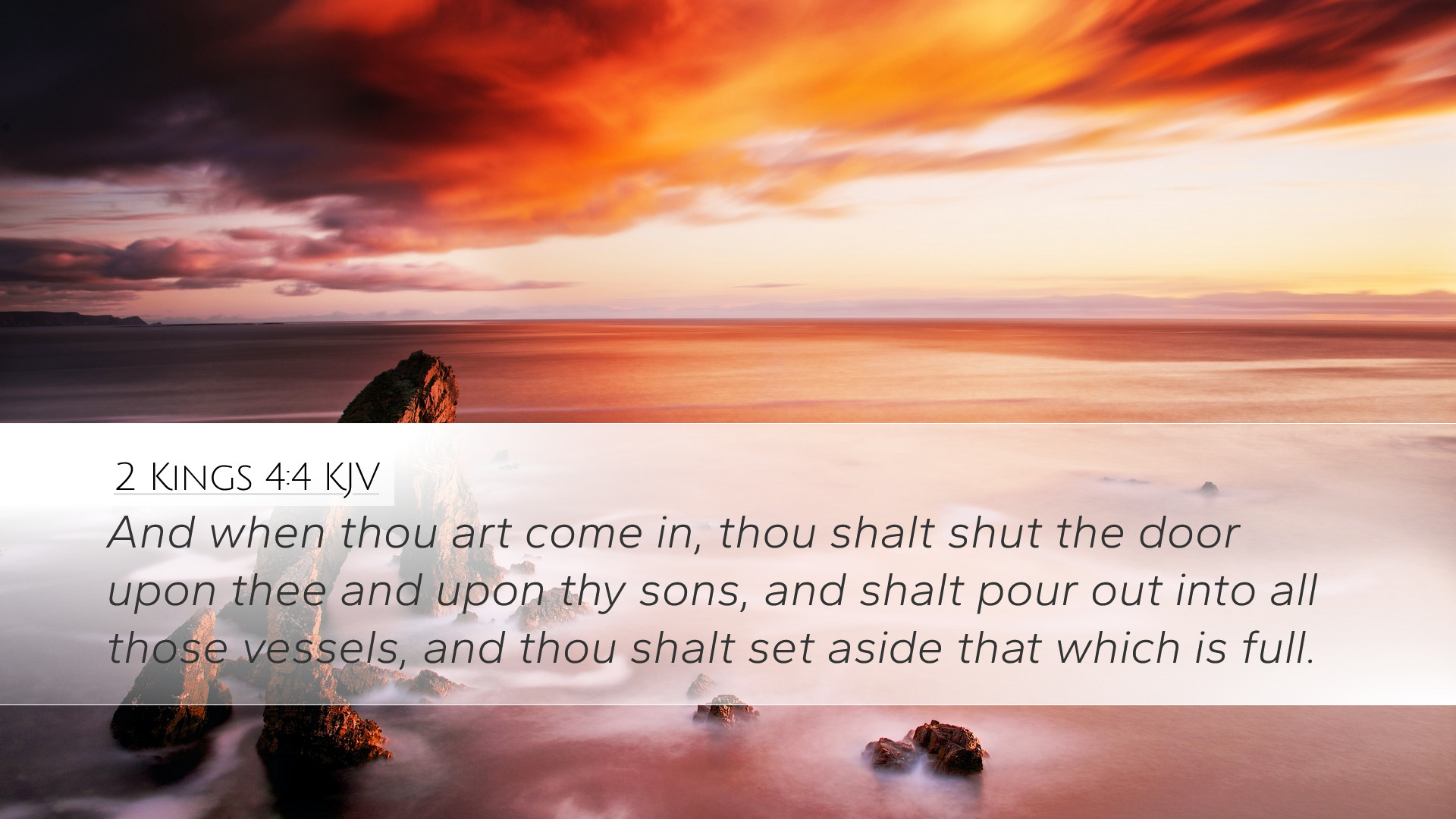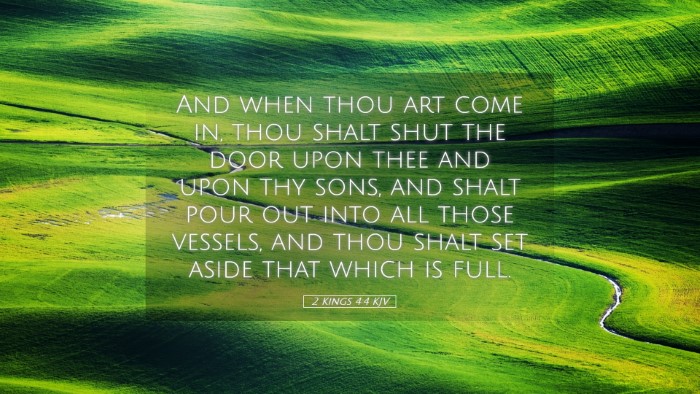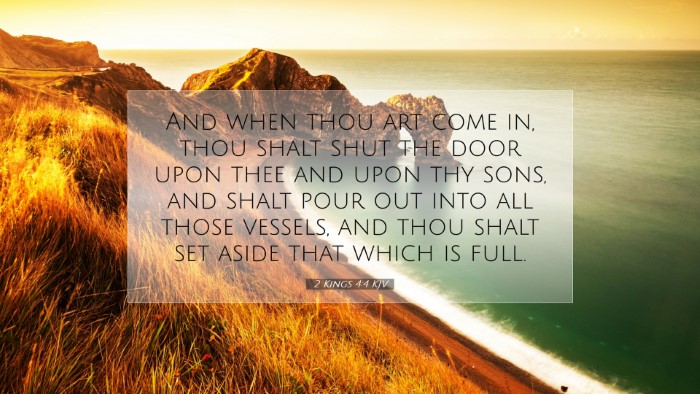Commentary on 2 Kings 4:4
Scripture Text: "And when thou art come in, thou shalt shut the door upon thee and upon thy sons, and shalt pour out into all those vessels; and thou shalt set aside that which is full."
Introduction
The verse in 2 Kings 4:4 depicts an instructive moment in the context of Elisha’s ministry and showcases the profound principles of faith, obedience, and divine provision. The context surrounding this verse is critical; it follows the account of a widow who, in desperate times, seeks help from the prophet Elisha. The events that unfold illustrate God's compassion and provision in times of need by leveraging obedience and active faith.
Insights from Public Domain Commentaries
Matthew Henry’s Commentary
Matthew Henry emphasizes the significance of the widow’s faith and the prophetic instruction. The act of shutting the door symbolizes a necessary separation from doubt and the distractions of the world. Henry notes that the act of pouring oil into vessels is a form of obedience that leads to miraculous provision.
He further remarks on the importance of private worship and the sanctuary of the home in times of crisis. In solitude, the woman is able to witness the divine work without external interference, demonstrating faith that operates in quietude and trust.
Albert Barnes’ Notes on the Bible
Albert Barnes highlights the practical aspect of this miracle, illustrating that faith should be active. The instructions given to the widow involve using what little she has, indicative of God's willingness to multiply our small offerings. Barnes points out that God often requires an exercise of faith before He responds with abundance.
He also comments on the vessels being set aside. This indicates not only the necessity of preparation but also the importance of recognizing the value of what we consider insufficient. Therein lies a demonstration of God's power to transform the mundane into the miraculous, urging believers to trust in His provision beyond conventional resources.
Adam Clarke’s Commentary
Adam Clarke brings forth the theological implications of God’s providential care shown through this miracle. He interprets the act of pouring oil as a metaphor for the spiritual blessings that flow into a believer's life when one is obedient and receptive to divine guidance. Clarke notes that the requirement to gather vessels showcases the role of human responsibility in the divine economy.
Clarke also elucidates the significance of the closed door; it serves as an illustration of the believer's need to retreat from the world and focus on receiving God’s blessings. This withdrawal not only emphasizes a personal relationship with God but also the necessity of minimizing distractions in our spiritual journey.
Theological Implications
This verse serves as a powerful reminder of several theological truths:
- Divine Provision: God often provides for our needs in ways we do not expect or understand. The widow had only a small jar of oil, yet it became the source of sustenance and rescue for her family.
- Importance of Obedience: The woman's initial response to Elisha's directive represents an essential act of faith. True faith manifests in obedience, especially when circumstances seem dire.
- The Role of Community: The involvement of her sons in the gathering of vessels highlights the importance of community in the faith journey. We are often called to engage with those around us as we step forward in faith.
Application for Pastors and Leaders
For pastors and church leaders, this passage prompts reflection on several practical applications:
- Encouraging Faith in Hard Times: Leaders should remind congregants that God is aware of their struggles and that divine help can come in unexpected ways. Like the widow, they should be encouraged to bring their needs before God with expectant faith.
- Promoting Active Participation: Churches should encourage members to identify their 'little' resources and to bring them before God for His use. This could involve talents, time, finances, or any form of contribution that may seem inadequate in human eyes.
- Creating Spaces for Retreat: Just as the widow shut the door, church leaders can promote practices that allow for solitude and worship, helping individuals to focus on God's voice amidst life's noise.
Conclusion
In conclusion, 2 Kings 4:4 is rich with lessons on faith, the importance of obedience, and the assurance of divine provision. The insights gathered from the commentaries of Matthew Henry, Albert Barnes, and Adam Clarke illuminate the depths of God’s care for His people. As we reflect on this verse, let us be encouraged to exercise our faith actively, trusting in God's ability to provide abundantly from our meager offerings, and to shut the door on doubts that hinder our trust in Him.


